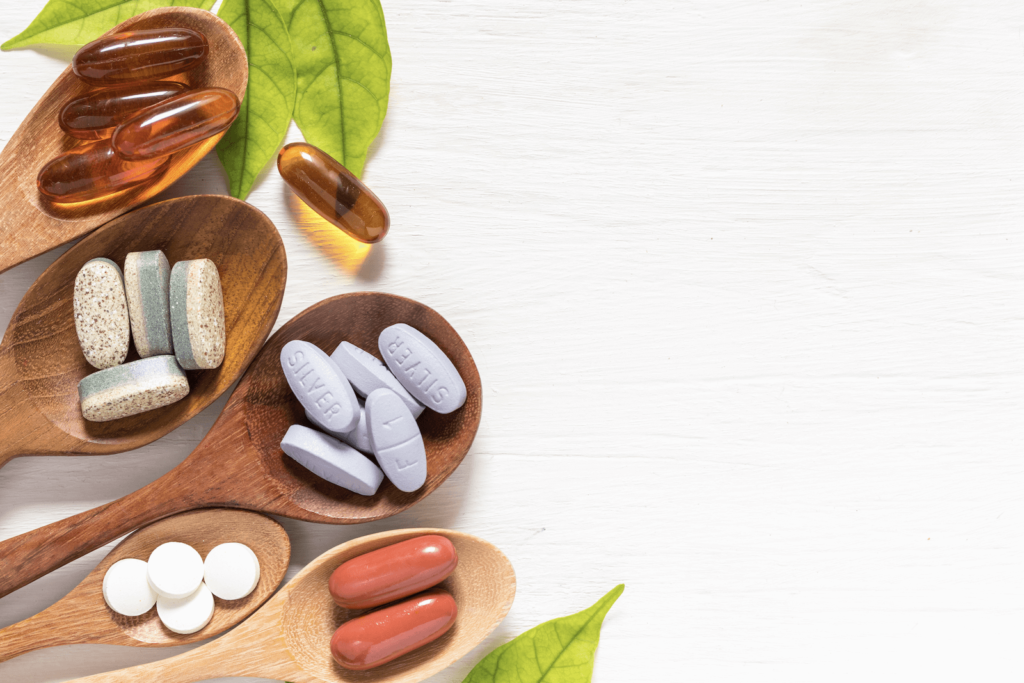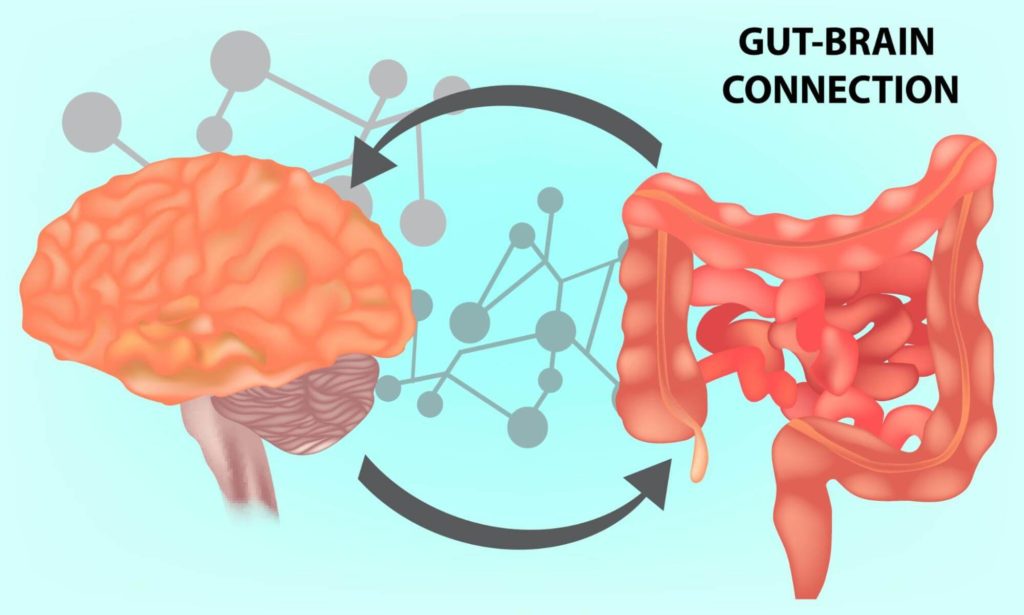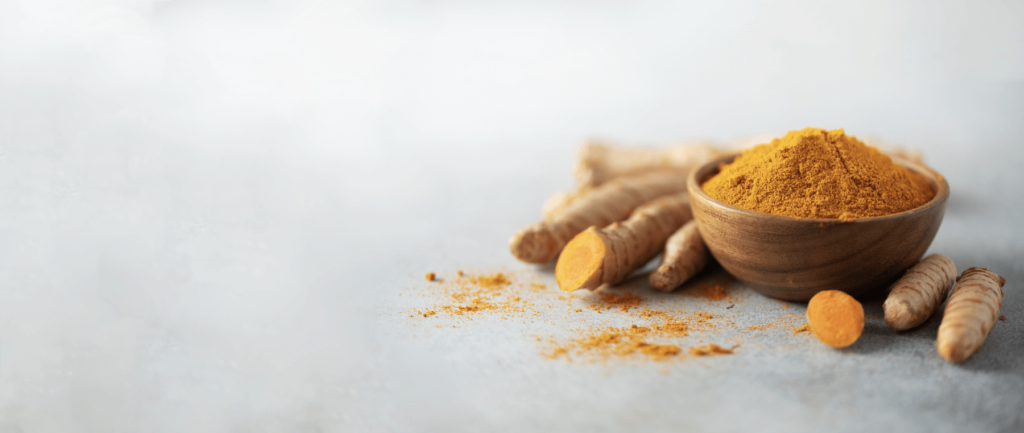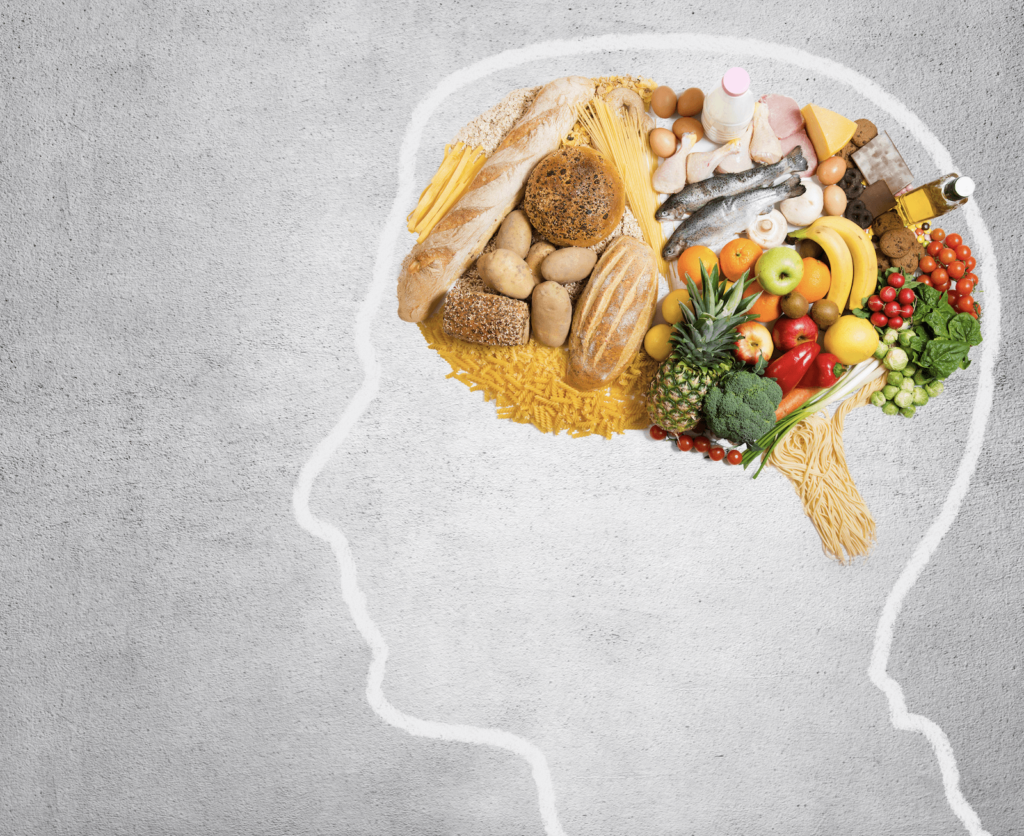Your Guide to the Best Supplements for Brain Health
How to Improve Learning, Memory, Focus, and Cognition with Natural Products
- When to Use Supplements|
- Best Supplements for Brain Health|
- How to Create a Solid Foundation|
- Diet and Gut Health|
- Recommended Products|

When your brain isn’t firing on all cylinders, it can cause a range of frustrating symptoms like brain fog, memory issues, difficulty concentrating, and learning challenges. Unfortunately, many people struggle with these and other neurological symptoms every day.
For a truly healthy brain, you need to begin with a foundation of diet, exercise, and enough quality sleep. But once you’ve established that healthy foundation, supplements can give you an even greater cognitive boost.
Dietary supplements for brain health, also known as nootropics or “smart drugs,” can help optimize brain function and may slow cognitive decline that comes with age.
Of course, not all supplements are created equal. In this guide, we’ll discuss when to use these smart drugs and which ones are likely to be the most effective.
When to Use Supplements for Brain Health

Some marketing will have you believe that if you just pop a pill each day, you’ll become a top performer overnight — but this doesn’t pan out for most people. While there’s a significant amount of research backing the benefits of nootropics and brain-supportive nutrients, these supplements aren’t necessarily the ideal first step in improving cognitive health.
The truth is, if you’ve been struggling with brain fog, concentration, fatigue, or memory, your first step is to look at your diet and lifestyle. Your brain has a few prerequisites before it can fire on all cylinders. These include optimal sleep, exercise, diet, and gut health. We’ll discuss these factors more later on, but you must set up a solid foundation for brain health before you start throwing supplements in the mix.
With that being said, once you create this solid foundation for brain health, you can use supplements to help offer an enhancement in efficiency, productivity, and cognition.
8 Research-Backed Supplements for Brain Health
Here are eight over-the-counter, research-backed supplements that support brain health and may give your brain the boost you’re looking for.
#1 Probiotics

Unlike the other supplements for brain health listed here, probiotics impact brain health via the gut. While it may seem counterintuitive to start in the gut instead of going straight to the brain, research about the gut-brain connection would suggest otherwise.
While we are constantly learning more about the gut-brain axis, research has already uncovered many vital insights into how this connection impacts hormonal systems, neurotransmitters, emotional states, and more [1].
A perfect example of this is the cognitive issues that often come with digestive issues like SIBO (small intestinal bacterial overgrowth) and IBS (irritable bowel syndrome). Along with unpleasant digestive symptoms, these patients often present with cognitive symptoms like confusion, anxiety, depression, and brain fog [1, 2].
Therefore, probiotics that help to bring your gut microbiome back into balance may help with brain function in a variety of ways, including [3, 4]:
- Lowering stress and anxiety
- Improving memory (immediate and delayed memory)
- Enhancing social-emotional cognition
- Improving attention spans
- Improving cognitive function in Alzheimer’s and Dementia patients
In one study, researchers found that probiotics were able to lower stress and anxiety while improving memory, social cognition, and verbal learning in a group of highly stressed adults [3].
Another study examined the impact of probiotics on a group of people with mild cognitive impairment. After 12 weeks, the participants that took the probiotic experienced significant cognitive improvements, specifically in terms of attention, compared to the placebo group [4].
#2 Choline
Choline is a nutrient you can find naturally in foods like liver, eggs, wheat, and soybeans. As a component of acetylcholine, a crucial chemical messenger in your brain, choline plays a vital role in brain function.
Both human and animal studies have found that citicoline, a supplemental source of choline, may help limit the progression and reverse the adverse effects of dementia. Furthermore, research shows that this nutrient may improve memory and cognitive function in healthy people and improve stroke prognosis [5].
In one trial, Parkinson’s patients taking the pharmaceutical Levodopa were able to reduce their medication up to 50% when supplementing with citicoline. They also saw significant improvements in rigidity, voluntary movement, tremors, handwriting, speech, and cognition — common cognitive and motor impairments associated with Parkinson’s disease [6].
#3 Ashwagandha
Ashwagandha is an herb that’s been used in Ayurvedic medicine for thousands of years to enhance vitality and calm the nervous system. Recently, this herb has gained attention as an adaptogen, which is a compound that helps your body adapt to stress.
Research shows that taking ashwagandha may assist in [7, 8]:
- Performance on cognitive tasks
- Executive function
- Attention span
- Reaction time
- Working memory
- Social cognition
In a systematic review of five randomized controlled trials, researchers found that ashwagandha may improve cognitive dysfunction with very few side effects [7].
#4 Astragalus
Astragalus, also known as Huang qi, is an herb that comes from Traditional Chinese Medicine (TCM). It’s been used as an anti-aging and immune-boosting therapy for thousands of years. In Chinese medicine, astragalus is believed to prolong life and enhance vitality.
Research shows that astragalus may improve cognitive function in patients with post-stroke fatigue. Those who took astragalus extract after a stroke experienced higher cognitive function, better fatigue scores, and improvement in social functioning compared to the placebo group [9].
#5 Lion’s Mane
Much like astragalus, lion’s mane has been used for thousands of years in Traditional Chinese Medicine. As one of the most popular medicinal mushrooms, lion’s mane has been popularized as a natural nootropic.
Although there isn’t an abundance of clinical research focusing on lion’s mane and cognitive health, one trial found that those who took lion’s mane supplements experienced significantly improved cognitive function and less short-term memory loss than those who took a placebo [10].
#6 Omega-3 Fatty Acids
DHA and EPA are two omega-3 fatty acids that play a crucial role in neurology from infancy to adulthood. While you can find omega-3s in fatty fish like salmon and mackerel or in fish oil supplements, most people don’t get enough of them in their diet.
Your brain is made of 60% fat. This means that the type of fat you put in your body has a significant impact on the structure and function of your brain.
As an example, research shows that people with Alzheimer’s disease (carrying the APOE4 genotype) have less DHA in their blood. Interestingly, they also tend to have a greater reduction in the volume of their hippocampus (the part of the brain involved in memory and learning), and this change is correlated with the low DHA. This shows a direct relationship between DHA, brain structure, and cognitive function [11].
In a systematic review of 16 randomized controlled trials, researchers found that supplementing with DHA and EPA improved cognition and memory performance in people with mild cognitive impairment [12]. Furthermore, just one serving of fatty fish per week (a rich source of omega-3s) is associated with a lower risk of dementia and Alzheimer’s disease [13].
#7 Turmeric

Turmeric is a spice that’s gained a lot of attention in recent years for its anti-inflammatory activity, which can be attributed to the bioactive compound curcumin. Another gem from the traditional medicine of India, Ayurveda, turmeric may enhance cognitive function in older adults, as indicated by a 2018 randomized controlled trial.
In the study, 40 adults (without dementia) aged 51 to 84 took curcumin supplements twice a day for 18 months. At the end of the trial, the supplement group showed improvements in long-term memory, visual memory, and attention when compared to the placebo group [14].
#8 Phosphatidylserine
Phosphatidylserine is a phospholipid, which is a component of your cell membrane. Particularly abundant in the cells of your nervous system, phosphatidylserine helps send signals between your brain cells.
Research shows that supplementing with phosphatidylserine may improve memory, mood, and cognition among the elderly, as concentrations of this phospholipid may decline with age. In addition, supplementation with this phospholipid may help to stabilize daily functioning and emotions in Alzheimer’s patients [15].
In another study involving 131 adults with memory complaints, 300 mg of phosphatidylserine each day for 15 weeks resulted in significantly improved attention and memory compared to the placebo group [16].
How to Create a Solid Foundation for Brain Health

As previously mentioned, while supplements can offer a powerful way to support cognitive function, your brain has a few foundational needs that must be addressed first.
These include:
- Diet
- Gut health
- Sleep
- Exercise
Diet and Gut Health
Diet and gut health go hand-in-hand, and as you’ve learned, gut health and cognitive function are intimately related.
Due to the gut-brain connection, the state of your microbiome can significantly impact cognitive function. While probiotics can significantly impact gut health (and therefore brain function), your first step is to address your diet.
Diets that are packed with processed foods, sugar, low-quality fats, and devoid of vital nutrients can damage your gut and directly impact brain health. Research shows that consuming a diet rich in simple carbohydrates and fat is associated with changes in your gut microbiota along with neuroinflammation [17].
On the other hand, diets that are anti-inflammatory and antioxidant-rich, like the Mediterranean diet or ketogenic diet, have been shown to protect against cognitive decline in older adults and may be neuroprotective, combating inflammation and oxidative stress [18, 19].
Everyone’s body is different, so the diet that works best for you may be different from the diet that works for your neighbor. It’s important to regularly eat nutrient-rich, real foods as opposed to highly processed, sugar-laden foods.
Sleep

Sleep is often overlooked as a vital aspect of health, and many people are getting far less sleep than their brain and body would like. When it comes to brain health and cognitive function, sleep is absolutely crucial for the regeneration of neurons and the clearing of waste products from the brain [20]. What’s more, research shows that lack of sleep may contribute to leaky gut among those with inflammatory bowel disease (IBD) [21]. Leaky gut can in turn contribute to neuroinflammation [21].
While you sleep, your brain processes and stores information that you learned during the day. Not surprisingly, studies show that getting enough sleep can improve learning outcomes and memory [22].
Many people are unaware of how poor their sleep habits have become. You may just be accustomed to feeling tired. Or perhaps you sleep through the night, but your sleep isn’t as restful as you think. If you’re unsure about your sleep quality, try the Oura Ring or home sleep tests like WatchPAT ONE. These tools will provide you with information about your sleep cycle and help you get back on track if you’re not getting optimal rest.
I can note from my own experience and experience with many of my patients that improving your sleep is one of the absolute best things that you can do to feel sharper.
Exercise
The benefits of exercise for cognitive health cannot be understated. When you’re physically active, the brain-derived neurotrophic factor (BDNF) increases. This assists in your brain’s ability to process information. As a result, exercise can create lasting changes in your brain related to learning and memory [23].
Research shows that regular physical activity can have a beneficial effect on [24]:
- Processing speed
- Attention
- Cognitive flexibility
- Working memory
- Language skills
Exercise also helps to decrease systemic inflammation and improve sleep quality, which can both directly impact brain health [25, 26].
Takeaway
If you’re looking for a way to improve your cognitive performance, enhance thinking skills, and clear brain fog, you’re not alone. As neurological diseases continue to grow in the United States and worldwide, many people are focusing their brain function as part of wellness.
Brain health supplements offer a range of neurological health benefits. When chosen properly, they may improve your work performance and overall cognitive skills.
With that being said, you’ll get the most benefit out of these brain supplements if you already follow a healthy diet, get enough sleep, and engage in physical exercise regularly.
Dr. Michael Ruscio is a DC, natural health provider, researcher, and clinician. He serves as an Adjunct Professor at the University of Bridgeport and has published numerous papers in scientific journals as well as the book Healthy Gut, Healthy You. He also founded the Ruscio Institute of Functional Health, where he helps patients with a wide range of GI conditions and serves as the Head of Research.

Discussion
I care about answering your questions and sharing my knowledge with you. Leave a comment or connect with me on social media asking any health question you may have and I just might incorporate it into our next listener questions podcast episode just for you!